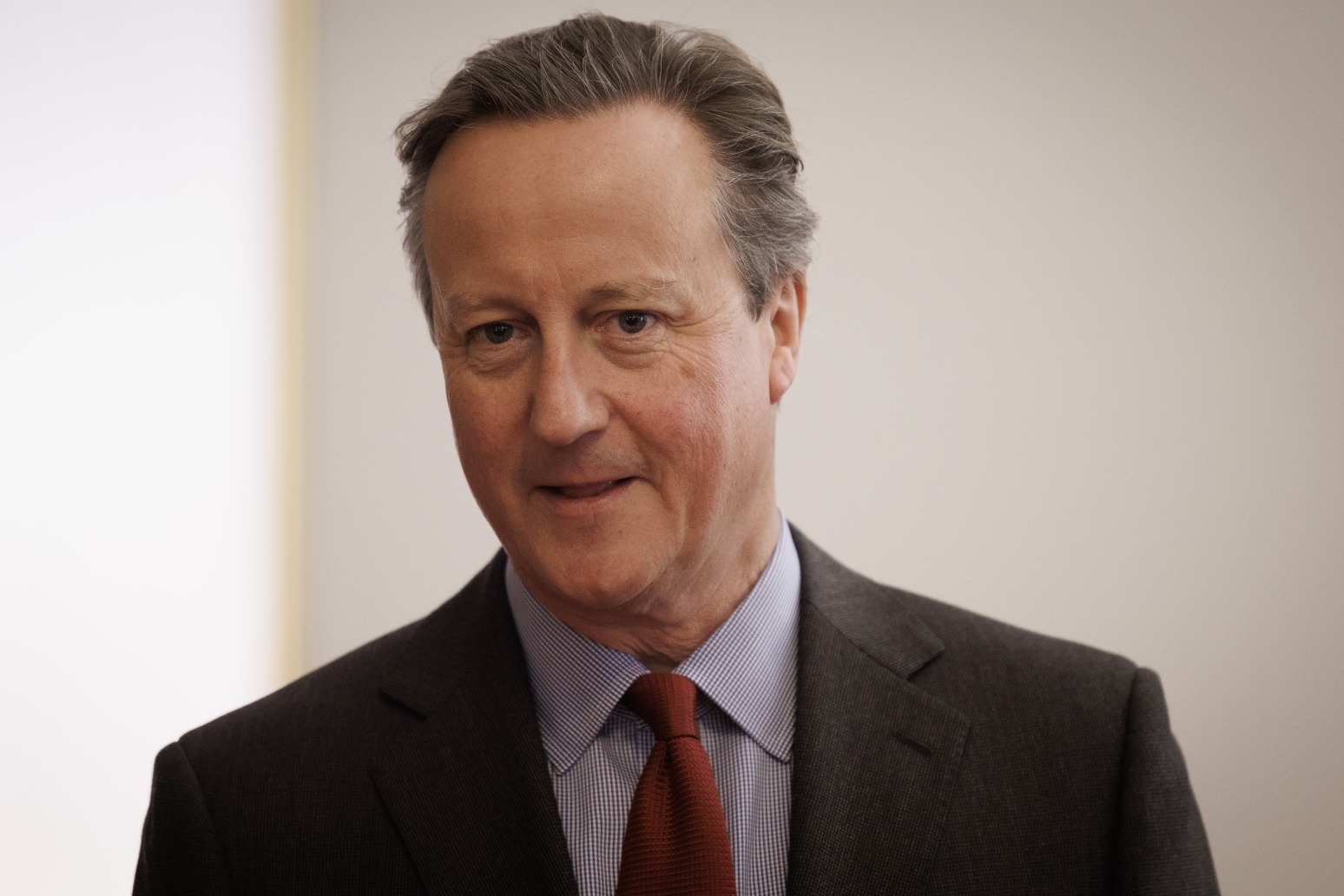
The Security Council has adopted a watered-down resolution calling for the immediate acceleration of aid deliveries to civilians
Lord David Cameron has said there is “greater unity” over the response to the crisis in Gaza after the UN Security Council adopted a watered-down resolution calling for the immediate acceleration of aid deliveries to civilians.
The UK Foreign Secretary repeated calls for steps towards a “sustainable ceasefire” following the approval of the vote by 13-0, with the United States and Russia abstaining.
But charities and aid organisations said the resolution does not go far enough and urged the UK to call for a permanent and immediate cessation of violence.
It came after a US veto of a Russian amendment that would have restored the call for a suspension of hostilities, which is absent from the revised text.
That vote was 10 members in favour, the US against and four abstentions.
The new resolution was negotiated during a week-and-a-half of high-level diplomacy by the United States, the United Arab Emirates on behalf of Arab nations and others.
Lord Cameron welcomed the vote as “good news” in a statement, saying: “Crucially, the resolution also calls for steps towards a sustainable ceasefire. This is an outcome that I advocated for last week along with the German foreign minister and strongly think is the right approach.
“A sustainable ceasefire must mean that Hamas is no longer there, able to threaten Israel with rocket attacks and other forms of terrorism.”
He added: “It has been a difficult process to reach agreement within the UN but there is now greater unity and purpose about what needs to happen to relieve the humanitarian crisis, and to start working towards the sustainable ceasefire that the British Government has argued for.”
Labour leader Sir Keir Starmer also welcomed the vote, saying: “The next humanitarian truce is urgent, and in the space it brings, intense diplomacy should begin to set new terms under which fighting does not restart and the risk of escalation is reduced.
“Hamas must release all the remaining hostages, end all attacks on Israel and have no role in the future governance of Gaza. Israel must agree to end its bombing campaign, allow a humanitarian surge into Gaza, and end settler violence and displacement in the West Bank.”
He said a sustained ceasefire was “necessary, but not sufficient” to ensuring long-term peace in the region, insisting there must be “a new political process that has the capacity, conviction and commitment to turn a rhetoric around two states living side by side in peace into reality”.
Charities and human rights organisations said that the resolution does not go far enough.
Amnesty urged the UK Government to “make the case for an urgently needed, immediate and enduring ceasefire” while ActionAid warned that without a ceasefire, aid cannot be delivered “safely and at scale”.
William Bell, head of Middle East policy at Christian Aid, said the vote had “fallen short” of backing a ceasefire, adding: “Only a permanent ceasefire can safely deliver the scale of humanitarian aid required. Pressure must also be kept up until the unconditional release of all hostages is agreed.”
Oxfam GB’s interim chief executive Aleema Shivji said the failure to call for a ceasefire amounted to a “profound dereliction of duty from an organisation established to uphold the UN Charter” and urged the UK Government to use its influence to push for stronger action.
Israel’s war to destroy Hamas has killed more than 20,000 people, health officials in Gaza have said. It follows Hamas’s October 7 attacks, in which some 1,200 people were killed and 240 were taken hostage.
Israel’s expanding aerial and ground offensive has been one of the most devastating military campaigns in modern history, displacing nearly 85% of a population of 2.3 million and levelling wide swathes of the tiny coastal enclave.
On Friday, the US won the removal of a tougher call in the UN Security Council resolution for an “urgent suspension of hostilities” between Israel and Hamas.
The vote was the first on the war to make it through the council after the US vetoed two earlier ones calling for humanitarian pauses and a full ceasefire.
Martin Griffiths, the UN humanitarian affairs chief, lamented inaction over the conflict.
In a post on X, formerly Twitter, he said: “That such a brutal conflict has been allowed to continue and for this long – despite the widespread condemnation, the physical and mental toll and the massive destruction – is an indelible stain on our collective conscience.”
Published: by Radio NewsHub









